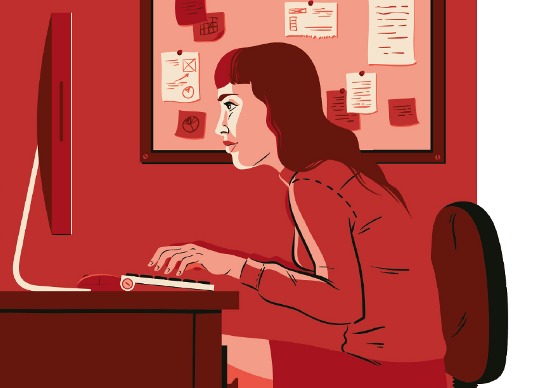How to manage a distributed team
How to ensure a healthy work culture when your colleagues sit in nearby countries, not at nearby desks.
One of the hottest topics in the industry is that of remote workers and distributed teams. Some feel these teams are the way of the future, while others feel they're the death of efficiency and creativity. Most of these discussions miss the point. Both located and distributed teams are made up of people. The issue isn't "are you sitting next to each other?" It's "are you 'connected'?" If you aren't, it doesn't mean jack where you boot up your laptop.
The team members...
Some people are better equipped to be remote workers than others, just as some people work better in silence than chaos. Often, people who have been successful freelancers - or who have run their own businesses - make the best candidates. At nGen Works, these are the traits we've found most important in potential staff:
01. Not an asshole
It doesn't matter how talented you are if you're an asshole. Because… well, because you're an asshole. It only takes one to derail an entire team.
02. Social
Even though they're working remotely, good remote workers like communicating in real time. Video chats and hangouts become the norm.
03. Collaborative
Remote workers should want to solve challenges together. Their need to collaborate is high.
04. Results-driven
They want to know the impact they have on the project, the company, and the team.
05. Self-starting
The best remote workers set goals for themselves and their teams.
Daily design news, reviews, how-tos and more, as picked by the editors.
06. Feedback-needing
They crave information on how they're doing, both individually and as a part of the team. They also want to hear others' contributions.
07. Autonomous
A strong desire to be self-directed and to have a say in how things are done – that's what gets a remote worker up and online in the morning.
08. Energetic
A great distributed team-mate finds ways to energise others. Energy is critical to creating great work, as well as keeping the team motivated.
09. Sense of humour
The importance of having a good sense of humour may sound silly. It can help a disconnected effort take the high road and get back on track. Remote teams thrive on inside jokes and memes that nobody else will get. More serious team members may see this as goofing off when, in reality, it's the glue that holds everything together.
10. Good written skills
On a distributed team, there's a tremendous amount of written communication, especially when you factor in all the timezone differences. The ability to get your point across clearly and concisely is a major benefit.
11. Confidence
When you don't see your co-workers, it's easy to let doubt seep into your decision making. Ongoing communication and feedback can help keep you feeling confident, but in those hours when it's just you, it's critical that you can charge ahead.

...and what they need
Great staff are the foundation of a great distributed team. But they aren't enough on their own. Here are 10 things they will need to help them grow and thrive:
01. Support
A remote worker needs to know that someone wants them to succeed: someone who can guide them if they're feeling lost. Every person on a distributed team needs a mentor. In return, everyone on a distributed team needs to be a mentor. This ongoing flow of responsibility keeps the team focused on helping one other.
02. Communication
One of the biggest dangers for a distributed team is silence. It's too easy for a team member to slip into a funk if nobody's chatting. At the same time, interruptions kill efficiency. Planned weekly communications keep a team connected. Talk about the company, its processes and new business. Celebrate birthdays, work anniversaries and other positive events. Maybe you can't all share the cake, but you can still sing happy birthday in a hangout.
03. Definition
The team needs to understand what is expected of it, even when it works autonomously. Write down how things work and always provide a channel for discussion. Revisit your process quarterly or after major shifts to make sure it still makes sense.
04. Planned in-person meetings
Located teams can head to happy hour to talk about tough stuff going on at work. Remote workers don't get that chance. That's why face time needs to be planned. The importance of hanging out can't be overstated. There's a huge difference between getting an email from someone you've never met and getting one from someone you laughed at when they fell off the mechanical bull.
05. Multi-local presence
Don't think of a distributed company as location-less: think of it as having many locations. Celebrate being multi-local by letting remote workers create or sponsor events. Provide a budget for this to empower them to grow their own communities. As well as helping team members feel connected, this will establish a bigger presence for your company.
06. Autonomy, mastery, purpose
Daniel Pink's book Drive teaches us that autonomy, mastery and purpose are the keys to happy, effective workers. Every member of a team has to have some control over their day and career. One way to do this is to let the team choose who they work with and which projects they take on. Ultimately, doing work that matters to you trumps everything else.
07. Transparency
If a team is going to have autonomy, it needs to have all the relevant information. Otherwise, team members can't make good decisions. How much money is in the bank? Is the new business pipeline full, or are leads trickling in? Are clients satisfied? How do my team-mates feel about the work we're doing? How do they feel about me? Be open and share.
08. Ambient accountability
We act differently in public than in private. When things go wrong, talk about them publicly. Keep all communications public, even difficult ones. By sharing the outcomes, everyone gets stronger and understands what's expected. Make all company plans and commitments available for review. Publish all meetings and make visitors welcome to listen in. A culture of openness creates trust.
09. Trust
Without trust, you aren't a team: you're a group of individuals. Trust is when we know other people are doing their jobs and we can focus on ours. A lack of trust means that people are constantly leaving their commitments to check on someone else's. This will suck the energy out a team.
10. A good culture
Culture is the toughest thing for any company to create. You can't force it. It emerges from individuals and the opportunities they have to connect, share, and create experiences together. A great distributed team has someone who looks for those sparks that show up in a message thread and nurtures them into opportunities for people to bond.

Now it's up to you
There isn't a magic formula to help your remote team kick ass. But, what you can do is commit to welcoming everyone into the fold. Be willing to give everyone a voice. Enable them to help the team in ways unrelated to their core skill sets. When you know you make a difference, that gets you into the virtual office on time.
Words: Carl Smith Illustration: Ben Mounsey
Carl Smith is co-founder and 'chief keeper upper' of nGen Works. He speaks at events all over the world, often on the subject of distributed teams. This article originally appeared in net magazine issue 249.
Liked this? Read these!
- The designer's guide to working from home
- Useful mind mapping tools for designers
- Free business card templates

The Creative Bloq team is made up of a group of art and design enthusiasts, and has changed and evolved since Creative Bloq began back in 2012. The current website team consists of eight full-time members of staff: Editor Georgia Coggan, Deputy Editor Rosie Hilder, Ecommerce Editor Beren Neale, Senior News Editor Daniel Piper, Editor, Digital Art and 3D Ian Dean, Tech Reviews Editor Erlingur Einarsson, Ecommerce Writer Beth Nicholls and Staff Writer Natalie Fear, as well as a roster of freelancers from around the world. The ImagineFX magazine team also pitch in, ensuring that content from leading digital art publication ImagineFX is represented on Creative Bloq.
